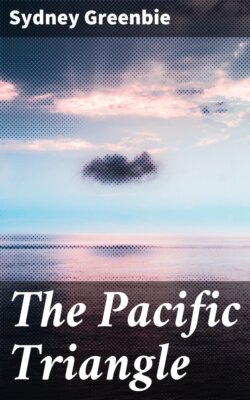Читать книгу The Pacific Triangle - Sydney Greenbie - Страница 27
На сайте Литреса книга снята с продажи.
4
ОглавлениеI took the launch which makes daily trips up the Rewa. The little vessel was black with natives—outside, inside, everywhere, streaming over to the pier. It was owned and operated by an Englishman named Message. Even in the traffic on this river combination threatens individual enterprise. "The company has several launches. It runs them on schedule time, stopping only at special stations, regardless of the convenience to the Fijians. It is trying to force me out of business," said Mr. Message, a look of troubled defiance in his face. "But I am just as determined to beat it."
So he operates his launch to suit the natives, winning their good-will and patronage. It was interesting to see how his method worked. No better lesson in the instinctive tendency toward coöperation and mutual aid could be found. He had no white assistant, but every Fijian who could find room on the launch constituted himself a longshoreman. They enjoyed playing with the launch. They helped in the work of loading and unloading one another's petty cargo, such as kerosene, corrugated iron for roofing (which is everywhere replacing thatch), and odd sticks of wood. And the jollity that electrified them was a delightful commentary on this one white man's humanity.
Delight rides at a spirited pace on this river Rewa. The banks are seldom more than a couple of feet above the water. The launch makes straight for the shore wherever a Fijian recognizes his hut, and he scrambles off as best he can. Here and there round the bends natives in takias (somewhat like outrigger canoes with mat sails, now seldom used), punts, or rowboats slip by in the twilight.
The sun had set by the time all the little stops had been made between Suva and Davuilevu, the last stopping-place. Each man, as he stepped from this little float of modernism, clambered up the bank and disappeared amid the sugar-cane. What a world of romance and change he took into the dark-brown hut he calls his own! What news of the world must he not have brought back with him! A commuter, he had probably gone in by that morning's launch, in which case he spent three full hours in "toil" or in the purchase of a sheet of corrugated iron or a tin of oil. He may have helped himself to a shirt from somebody's clothes-line in the spare time left him. One thing was certain, there were no chocolates in his pockets, for he had no pockets, and I saw no young woman holding a baby in her arms for daddy to greet.
Yet even from a distance one recognized something of family affection. To enter and examine closely would perhaps have made a difference in my impressions. I was content with these hazy pictures, to see these dark-skinned people merge with their brown-thatched huts curtained by shadows within the cane-fields. When night came on all was dissolved in shadow, and voices in song rose on the cool air.
